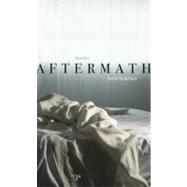THE CHARACTERS IN SCOTT NADELSON’S third collection are living in the wake of momentous events-- the rupture of relationships, the loss of loved ones, the dissolution of dreams, and yet they find new ways of forging on with their lives, making accommodations that are sometimes delusional, sometimes destructive, sometimes even healthy. In “Oslo,” a thirteen-year-old boy on a trip to Israel with his grandparents grapples with his father’s abandonment and his own rocky coming-of-age. In “The Old Uniform,” a young man left by his fiancée revisits the haunts of his single days, and on a drunken march through nighttime Brooklyn, begins to shed the false selves that have kept him from fully living. And in the title story, a couple testing out the waters of trial separation quickly discover how deeply the fault lines of their marriage run and how desperately they want to hang onto what remains. Mining Nadelson’s familiar territory of Jewish suburban New Jersey, these fearless, funny, and quietly moving stories explore the treacherous crossroads where disappointments meet unfulfilled desire.








